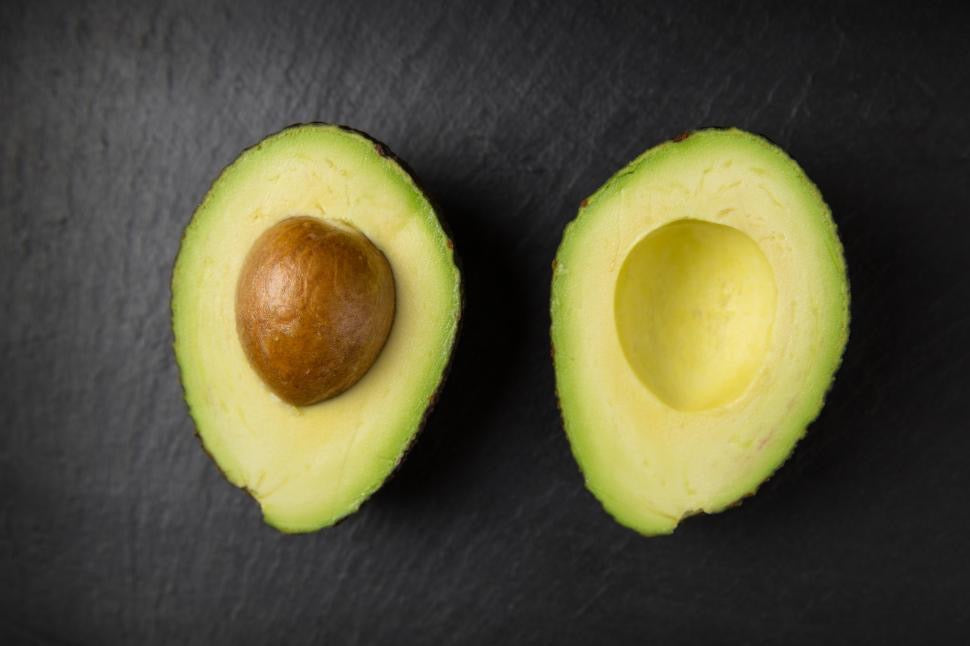An avocado allergy is when you experience symptoms after eating avocados or food containing avocados. Symptoms can be unpleasant, ranging from itchy skin to stomach pain. Serious allergies can cause breathing difficulties or anaphylaxis, but thankfully this is rare. In this post, we’re going to explore the signs and symptoms of avocado allergies, how common they are, and what food to avoid if you suspect you suffer from one.
Can you actually be allergic to avocado? Yes, you can be allergic to avocados. This allergy occurs when the immune system mistakenly identifies proteins in avocados as harmful substances, triggering an allergic reaction.
How common is this allergy? Avocado allergies are relatively uncommon compared to other food allergies. However, individuals with latex allergies may be more likely to develop an avocado allergy due to a phenomenon known as latex-fruit syndrome.
Avocado Intolerance & Allergy | Signs & Symptoms
Signs & Symptoms of an Avocado Intolerance or Allergy
What are the symptoms of an avocado allergy?
An avocado allergy can manifest in various ways, ranging from mild to severe. Here are some common symptoms:
| Symptom Type | Examples |
|---|---|
| Skin reactions | Itching, hives, eczema |
| Gastrointestinal | Nausea, vomiting, stomach cramps |
| Respiratory | Sneezing, coughing, shortness of breath |
| Anaphylaxis | Severe breathing difficulties, swelling |
What are the symptoms of an avocado intolerance?
Avocado intolerance differs from an allergy in that it does not involve the immune system. Symptoms are generally less severe and can include:
| Symptom Type | Examples |
|---|---|
| Gastrointestinal | Bloating, gas, diarrhea |
| Headaches | Migraines, general headaches |
What is food intolerance?
Food intolerance occurs when your digestive system has difficulty processing certain foods. Unlike allergies, intolerances do not involve the immune system and are generally less severe.
How common is an avocado intolerance?
Avocado intolerance is more common than an avocado allergy. Many people may experience digestive discomfort after eating avocados without having a full-blown allergic reaction.
How do you test for an avocado allergy or intolerance?
What should you do if you think you have an avocado allergy or intolerance?
If you suspect you have an avocado allergy or intolerance, it’s important to consult with a healthcare professional. They may recommend the following tests:
- Skin prick test: A small amount of avocado protein is placed on your skin, which is then pricked to introduce the protein to your immune system.
- Blood test: Measures the amount of specific antibodies produced in response to avocado proteins.
- Elimination diet: Involves removing avocados from your diet for a period of time and then gradually reintroducing them to observe any reactions.
What foods should you avoid if you have an avocado allergy or intolerance?
If you have an avocado allergy or intolerance, it’s crucial to avoid foods that contain avocados. This includes:
- Fresh avocados
- Guacamole
- Avocado oil
- Salads or dishes that include avocados
10 Alternatives to Avocado
If you need to avoid avocados, there are plenty of delicious and nutritious alternatives:
- Hummus: A creamy, protein-rich dip made from chickpeas.
- Mashed bananas: Great for spreading on toast.
- Greek yogurt: Can be used as a base for dressings and dips.
- Nut butters: Almond or cashew butter offers healthy fats.
- Eggplant: Provides a similar creamy texture in dishes.
- Olive tapenade: A flavorful spread made from olives.
- Pumpkin puree: Adds a smooth texture and nutritional benefits.
- Silken tofu: Great in smoothies and as a base for creamy dishes.
- Cottage cheese: High in protein and versatile in recipes.
- Coconut flesh: Offers a rich, tropical flavor.
How to test if you have an avocado allergy or intolerance
If you believe you may have an avocado allergy or intolerance, trying one of Check My Body Health’s home health tests can provide clarity and help you manage your symptoms effectively.






